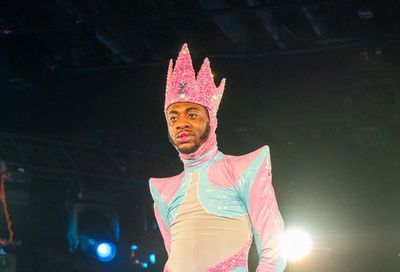Texas Bans Transgender Athletes in College Sports
Bill requiring athletes to compete based on the gender on their birth certificate builds on existing ban for K-12 athletes.

Texas Gov. Greg Abbott has signed a bill into law prohibiting transgender women from competing on female-designated sports teams at the collegiate level, following the lead of Alabama Gov. Kay Ivey, who signed a similar law into effect last month.
The ban on transgender athletes builds upon an existing ban for athletes in grades K-12 that requires school-aged children to compete in sports based on their assigned sex at birth.
The collegiate bill, dubbed the “Save Women’s Sports Act,” imposes similar restrictions, requiring athletes to compete based on their “biological sex,” defined as the gender listed on the college student’s original birth certificate. It also allows cisgender athletes who believe they’ve been disadvantaged by competing against transgender individuals to sue for damages .
Under the bill, which takes effect in September, the Texas Higher Education Coordinating Board, which oversees post-secondary education in the state, will draft and adopt rules for athlete eligibility to ensure the law is enforced while also ensuring that state and federal laws regarding the confidentiality of student health and medical information are not violated.
Sitting in front of a sign reading “A Win for Women Athletes during a bill-signing ceremony, Abbott hailed the bill’s passage as a victory for female athletes while repeatedly misgendering transgender females as “men,” according to The Hill.
“The Save Women’s Sports Act protects young women at Texas colleges and universities by prohibiting men from competing on a team or as an individual against them in college sports,” Abbott said. “Women in Texas can be assured that the integrity of their sports will be protected in our state.”
The NCAA, the governing body of college athletics, has historically allowed transgender females to compete on female sports teams if they had received at least one year of hormone therapy prior to competing. But the policy garnered criticism due to the successes of a few high-profile transgender athletes who had undergone hormone therapy but still had an advantage over cisgender competitors, such as former University of Pennsylvania swimmer Lia Thomas, who won the 500-yard freestyle at the NCAA Division I Swimming and Diving Championships last year.
In response to blowback that it received from opponents of transgender participation, the NCAA adopted a new policy allowing the governing bodies of individual sports to create their own criteria for determining athlete eligibility for transgender individuals.
At least 22 states have passed laws prohibiting transgender athletes from competing on sports teams matching their gender identity, according to the Movement Advancement Project, which tracks a variety of state-level legislation impacting the LGBTQ community.
The Republican-led U.S. House of Representatives also passed a bill seeking to limit participation in sports based on athletes’ assigned sex at birth, but the bill has stalled and is unlikely to be taken up by the U.S. Senate.
The push for such legislation comes at a time when the American public is largely opposed to allowing transgender athletes to compete on sports teams matching their gender identity, on the grounds that transgender competitors who have undergone male puberty hold distinct and unfair physiological advantages over cisgender females. According to a recent Gallup poll, nearly 7 in 10 Americans believe transgender people should only compete in sports based upon their assigned sex at birth.
Support Metro Weekly’s Journalism
These are challenging times for news organizations. And yet it’s crucial we stay active and provide vital resources and information to both our local readers and the world. So won’t you please take a moment and consider supporting Metro Weekly with a membership? For as little as $5 a month, you can help ensure Metro Weekly magazine and MetroWeekly.com remain free, viable resources as we provide the best, most diverse, culturally-resonant LGBTQ coverage in both the D.C. region and around the world. Memberships come with exclusive perks and discounts, your own personal digital delivery of each week’s magazine (and an archive), access to our Member's Lounge when it launches this fall, and exclusive members-only items like Metro Weekly Membership Mugs and Tote Bags! Check out all our membership levels here and please join us today!



































You must be logged in to post a comment.